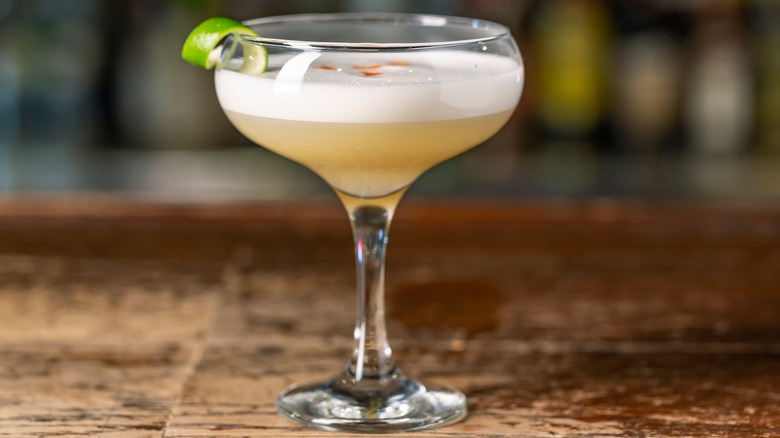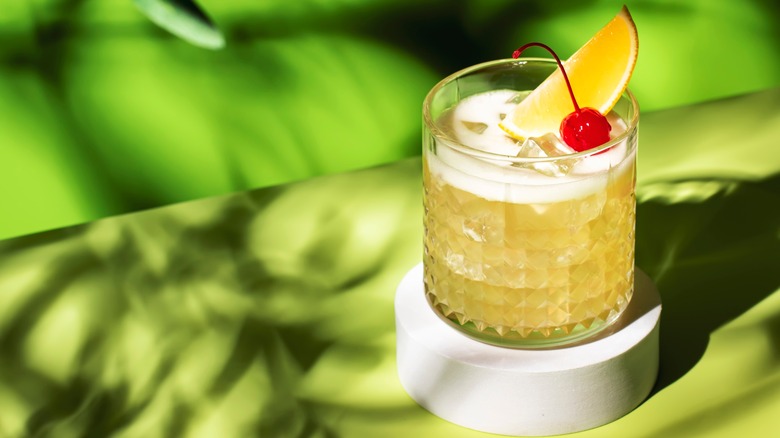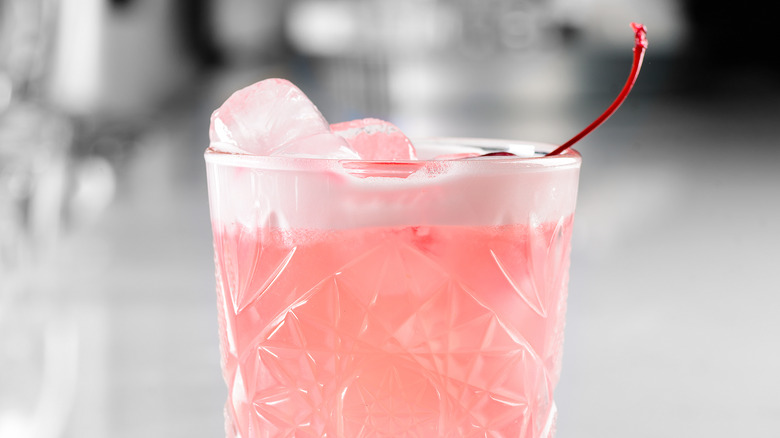Is There A Safety Risk When It Comes To Mixing Or Drinking Egg White Cocktails?
Egg whites, when cracked from an egg, don't have much visual appeal. They're a clear, thick liquid, and you might be wondering why anyone would ever want to incorporate that into a drink. However, the moment you whip, shake, or whisk an egg white, it turns from a frog to a prince, becoming a silky, creamy, bright white version of its former self. For this reason, it's viewed as the perfect way to beautify a cocktail.
Rumor has it that egg whites first appeared in cocktails such as eggnog and whiskey sours back in the mid-1800s. Since then, they've remained on many mixologists' menus, though there is one big elephant in the room: salmonella. Growing up, we were taught not to consume raw eggs due to the risk of foodborne illness — this applies to cocktails as well, right? If the eggs in cocktails aren't fully cooked, are they actually safe to eat?
It's never fully safe to consume raw eggs
As much as you might love the look and taste of an egg white cocktail, you do accept a certain level of risk every time you consume one. Eggs have the potential to harbor salmonella, a foodborne bacterial infection that most commonly results in diarrhea, fever, nausea, and vomiting. And if you add a raw egg to your drink, you do take that risk.
However, it's important to note that the risk of catching salmonella from raw eggs is quite slim. It's estimated that only about one in 20,000 eggs is actually contaminated with salmonella. Still, the U.S. produced about 113 billion eggs in 2019. If you crunch the numbers, that means that around 5.65 million eggs sold in the US were contaminated with the bacteria.
Although the odds are certainly in your favor, this still means there are plenty of chances you could get hit with a bad egg, leading to some serious discomfort over the following two weeks.
Best practices for avoiding salmonella in eggs
If you can't live without an egg white cocktail, there are a few measures you can take to prevent illness, whether you're making the drink yourself or ordering it from a bar.
If you're planning to be your own bartender, this might sound surprising, but you should avoid purchasing eggs from small, local farms (unless you plan to cook them thoroughly in another dish). A study out of Penn State University found that small flocks of chickens, more commonly raised by smaller, local farms, had a higher prevalence of salmonella than larger, commercial flocks. It's likely because the USDA regulates those larger flocks so closely and has certain rules in place to mitigate salmonella contamination.
Make sure to always store your eggs in a refrigerator that is 40 degrees Fahrenheit or below. Plus, only use fresh eggs. (If your eggs have been in the refrigerator for too long, you can use the water test to determine if the eggs have gone bad or not.)


